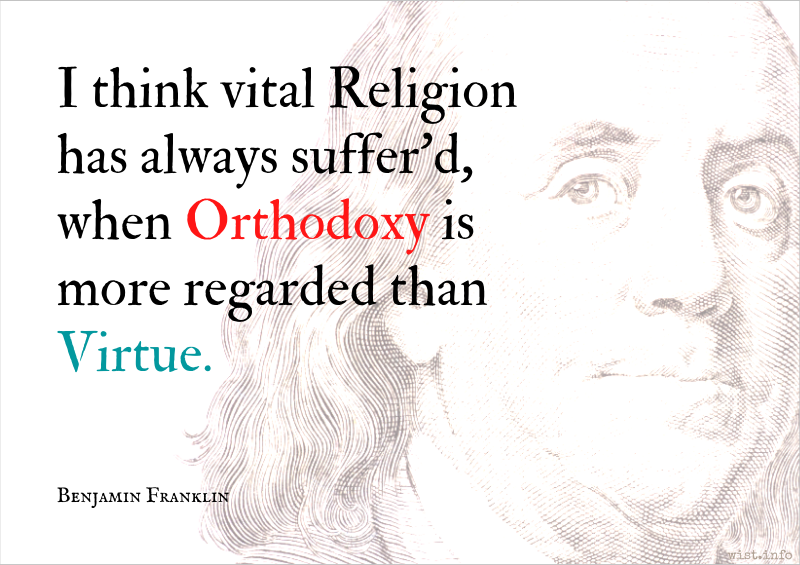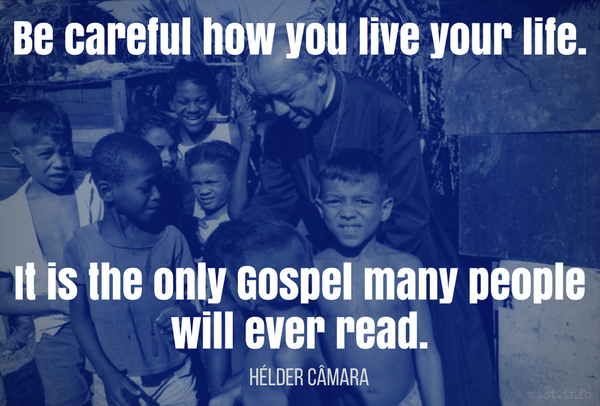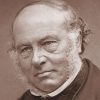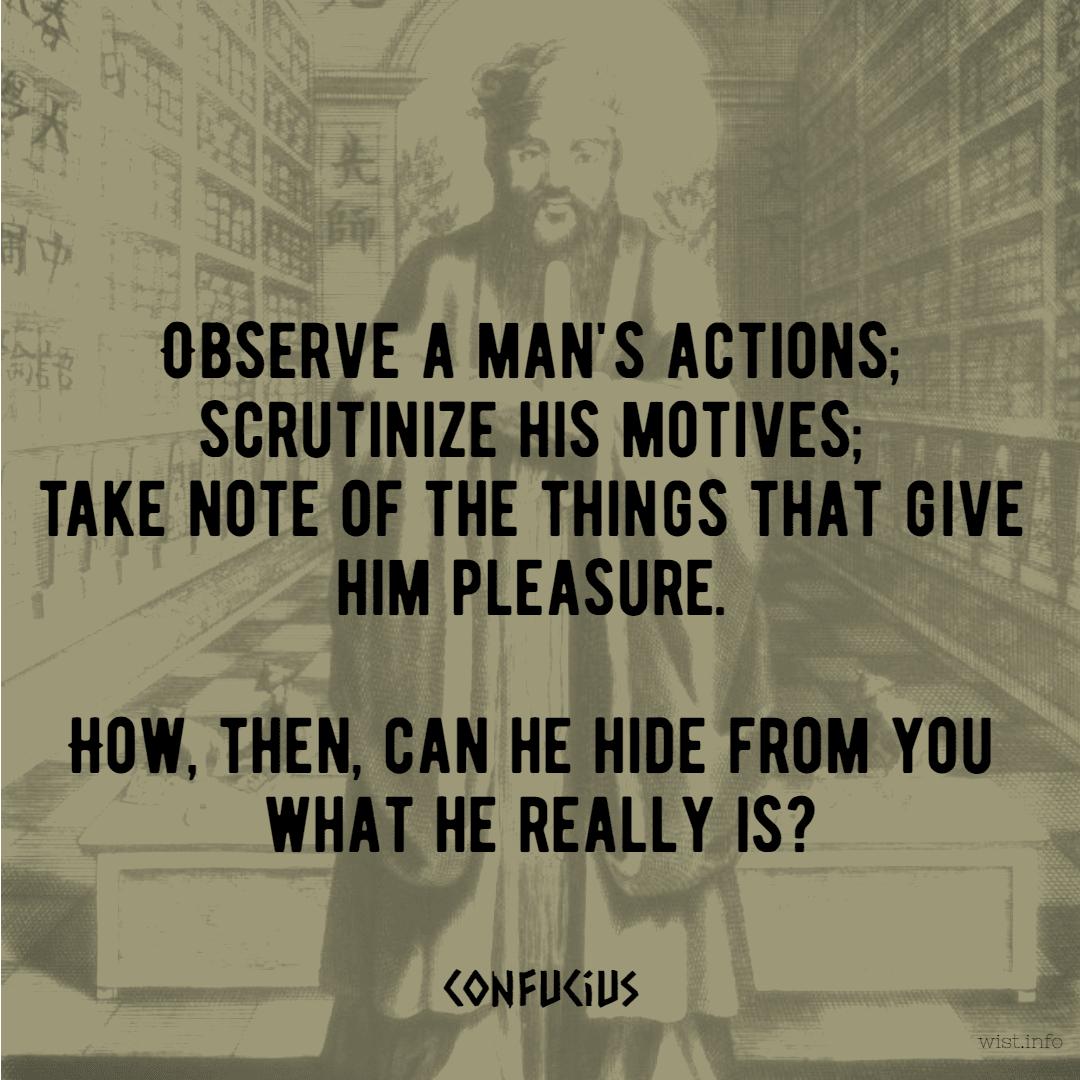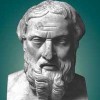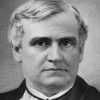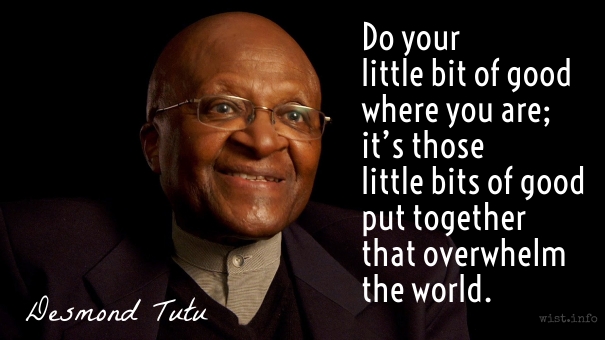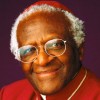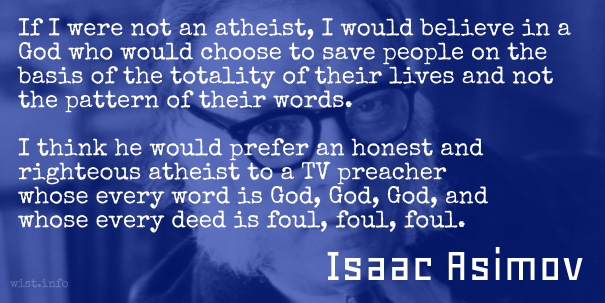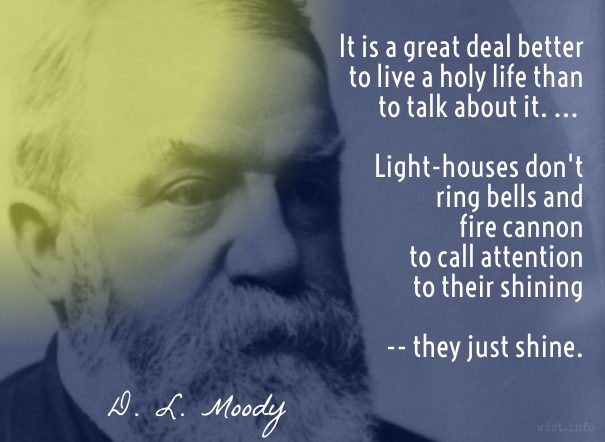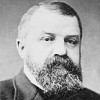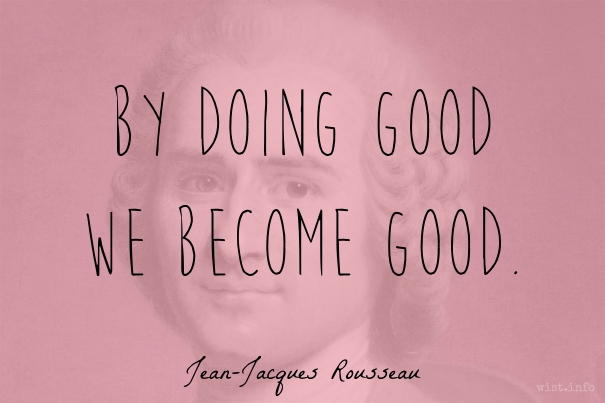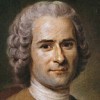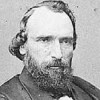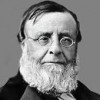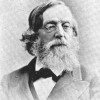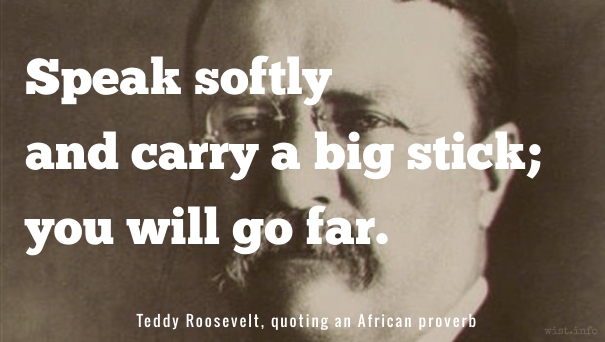CLAUDIO: O, what men dare do! What men may do!
What men daily do, not knowing what they do!William Shakespeare (1564-1616) English dramatist and poet
Much Ado About Nothing, Act 4, sc. 1, l. 19ff (4.1.19-20) (1598)
(Source)
Quotations about:
actions
Note not all quotations have been tagged, so Search may find additional quotes on this topic.
Behavior is a mirror in which everyone displays his own image.
[Das Betragen ist ein Spiegel in welchem jeder sein Bild zeigt.]
Johann Wolfgang von Goethe (1749-1832) German poet, statesman, scientist
Elective Affinities [Die Wahlverwandtschaften], Part 2, ch. 5, “From Ottilie’s Journal [Aus Ottiliens Tagebuche]” (1809) [tr. Hollingdale (1971)]
(Source)
(Source (German)). Alternate translation:
Behavior is a mirror in which every one shows his image.
[Niles ed. (1872)]
KING: From lowest place when virtuous things proceed,
The place is dignified by the doer’s deed.William Shakespeare (1564-1616) English dramatist and poet
All’s Well That Ends Well, Act 2, sc. 3, l. 136ff (2.3.136-137) (1602?)
(Source)
‘A time may come soon,’ said he, ‘when none will return. Then there will be need of valour without renown, for none shall remember the deeds that are done in the last defence of your homes. Yet the deeds will not be less valiant because they are unpraised.’
J.R.R. Tolkien (1892-1973) English writer, fabulist, philologist, academic [John Ronald Reuel Tolkien]
The Lord of the Rings, Vol. 3: The Return of the King, Book 5, ch. 2 “The Passing of the Grey Company” [Aragorn to Éowyn] (1955)
(Source)
The road must be trod, but it will be very hard. And neither strength nor wisdom will carry us far upon it. This quest may be attempted by the weak with as much hope as the strong. Yet such is oft the course of deeds that move the wheels of the world: small hands do them because they must, while the eyes of the great are elsewhere.
J.R.R. Tolkien (1892-1973) English writer, fabulist, philologist, academic [John Ronald Reuel Tolkien]
The Lord of the Rings, Vol. 1: The Fellowship of the Ring, Book 2, ch. 2 “The Council of Elrond” [Elrond] (1954)
(Source)
Possibly the origin of the spurious "Even the smallest person can change the course of the future." This is said by Galadriel, but only in the film version, The Fellowship of the Ring (2001), screenplay by Fran Wash and Philippa Boyens.
More discussion: Not a Tolkien quote: "Even the smallest person can change the course of the future." - thetolkienist.com.
Acts and their consequences are the things by which our fellows judge us. Anything else, and all that you get is a cheap feeling of moral superiority by thinking how you would have done something nicer if it had been you. So as for the rest, leave it to heaven. I’m not qualified.
Our responsibility is not discharged by an announcement of virtuous ends. Our responsibility is to achieve these objectives with social invention, with political skill, and executive vigor. I believe for these reasons, that liberalism is our best and our only hope in the world today.
John F. Kennedy (1917-1963) US President (1961-63)
Speech, Liberal Party Nomination, New York (14 Sep 1960)
(Source)
I think vital Religion has always suffer’d, when Orthodoxy is more regarded than Virtue. And the Scripture assures me, that at the last Day, we shall not be examin’d what we thought, but what we did; and our Recommendation will not be that we said Lord, Lord, but that we did GOOD to our Fellow Creatures.
Benjamin Franklin (1706-1790) American statesman, scientist, philosopher, aphorist
Letter to Josiah and Abiah Franklin (13 Apr 1738)
(Source)
His parents. Franklin cites Matt. 26 in the letter, but it should be Matt. 25:31-46.
We are too prone to judge ourselves by our ideals and other people by their acts. All of us are entitled to be judged by both. We must recognize the dignity of our neighbors and before we act must place ourselves in the place of our neighbor and judge our acts through his eyes.
Dwight Morrow (1873-1931) American businessman, diplomat, politician
Quoted in “Close Mexican Ties Urged by Morrow,” New York Times (17 May 1930)
(Source)
The first sentence of this comment by Morrow was popularized in a biography of him, Harold Nicolson, Dwight Morrow (1935). Nicolson is, in turn, often erroneously credited with the quote.
Nicolson noted it was frequently used by Morrow ("'Remember,' he would often repeat, 'that we are all inclined to judge ourselves by our ideals; others by their acts.'"). He also recounts a variant, "All nations are prone to judge themselves by the loftiness of their own purposes, and to judge others nations by their failure to attain their high purposes."
More discussion of this quotation (and its predecessors) can be found here. Compare also to a related sentiment by Longfellow.
A good tree cannot bring forth evil fruit, neither can a corrupt tree bring forth good fruit. Every tree that bringeth not forth good fruit is hewn down, and cast into the fire. Wherefore by their fruits ye shall know them.
The Bible (The New Testament) (AD 1st - 2nd C) Christian sacred scripture
Matthew 7:18–20 (KJV)
Alt. trans.:
- "A healthy tree cannot bear bad fruit, and a poor tree cannot bear good fruit. And any tree that does not bear good fruit is cut down and thrown in the fire. So then, you will know the false prophets by what they do." (GNT)
- "A good tree cannot bear bad fruit, nor can a bad tree bear good fruit. Every tree that does not bear good fruit is cut down and thrown into the fire. Thus you will know them by their fruits." (NRSV)
A man’s action is only a picture-book of his creed.
Ralph Waldo Emerson (1803-1882) American essayist, lecturer, poet
“Poetry and Imagination,” Letters and Social Aims (1876)
(Source)
Be careful how you live your life, it is the only Gospel many people will ever read.
Hélder Câmara (1909-1999) Brazilian Catholic Archbishop, social and political activist
(Attributed)
Quoted in 1985 in Basta, the national news letter of the Chicago Religious Task Force on Central America.
Alt. trans.: "Watch how you live. Your lives may be the only gospel your brothers and sisters will ever read."
This simply means that there is some good in the worst of us and some evil in the best of us. When we discover this, we are less prone to hate our enemies. When we look beneath the surface, beneath the impulsive evil deed, we see within our enemy-neighbor a measure of goodness and know that the viciousness and evilness of his acts are not quite representative of all that he is. We see him in a new light. We recognize that his hate grows out of fear, pride, ignorance, prejudice, and misunderstanding, but in spite of this, we know God’s image is ineffably etched in being. Then we love our enemies by realizing that they are not totally bad and that they are not beyond the reach of God’s redemptive love.
Martin Luther King, Jr. (1929-1968) American clergyman, civil rights leader, social activist, preacher
“Loving Your Enemies,” Sermon, Dexter Avenue Baptist Church, Montgomery (25 Dec 1957)
(Source)
A golden rule: We must judge men, not by their opinions, but by what those opinions make of them.
Georg C. Lichtenberg (1742-1799) German physicist, writer
Aphorisms, Notebook J, #201, p. 966 (1789-93) [tr. Hollingdale (1990)]
(Source)
Alternate translations:
- "A golden rule: we must judge people, not by their opinions, but by what these opinions make of them." [tr. Tester (2012)]
- It is a golden rule that one should not judge people according to their opinions, but according to what these opinions make of them.
- "It is a golden rule not to judge men by their opinions but rather by what their opinions make of them."
- "One must judge men not by their opinions, but by what their opinions have made of them."
- "Don't judge a man by his opinions, but what his opinions have made of him."
When all is said and all is done,
When all is lost or all is won —
In spite of musty theory,
Of purblind faith and vain conceit,
Of barren creed and sophistry:
In spite of all — success, defeat,
The Judge accords to worst and best,
Impartially, this final test:
What hast thou done with brawn and brain,
To help the world to lose or gain
An onward step? Canst reckon one
Unselfish, brave or noble deed,
That thou — nor counting cost! Hast done
To help a brother’s crying need?
Not what professed nor what believed —
But what good thing hast thou achieved?
Observe a man’s actions; scrutinize his motives; take note of the things that give him pleasure. How, then, can he hide from you what he really is?
[視其所以。觀其所由。察其所安。人焉廋哉、人焉廋哉]
Confucius (c. 551- c. 479 BC) Chinese philosopher, sage, politician [孔夫子 (Kǒng Fūzǐ, K'ung Fu-tzu, K'ung Fu Tse), 孔子 (Kǒngzǐ, Chungni), 孔丘 (Kǒng Qiū, K'ung Ch'iu)]
The Analects [論語, 论语, Lúnyǔ], Book 2, verse 10 (2.10) (6th C. BC – AD 3rd C.) [tr. Giles (1907)]
(Source)
(Source (Chinese)). Alternate translations:
See what a man does. Mark his motives. Examine in what things he rests. How can a man conceal his character? How can a man conceal his character?
[tr. Legge (1861)]
If you observe what things people (usually) take in hand, watch their motives, and note particularly what it is that gives them satisfaction, shall they be able to conceal from you what they are? Conceal themselves, indeed!
[tr. Jennings (1895)]
You look at how a man acts; consider his motives; find out his tastes. How can a man hide himself; how can he hide himself from you?
[tr. Ku Hung-Ming (1898)]
Observe what he does; look into his motives; find out in what he rests. Can a man hide himself! Can a man hide himself!
[tr. Soothill (1910)]
Watch a man’s means, what and how. See what starts him. See what he is at ease in. How can a man conceal his real bent?
[tr. Pound (1933)]
Look closely into his aims, observe the means by which e pursues them, discover what brings him content -- and can the man's real worth remain hidden from you, can it remain hidden from you?
[tr. Waley (1938)]
Look at the means which a man employs; consider his motives; observe his pleasures. A man simply cannot conceal himself!
[tr. Ware (1950)]
Observe a man's actions; scrutinize his motives; and study what makes him content. How can a man conceal himself?
[tr. Chai (1965)]
Look at the means a man employs, observe the path he takes and examine where he feels at home. In what way is a man's true character hidden from view? In what way is man's true character hidden from view?
[tr. Lau (1979)]
See how he operates, observe what path he follows, examine what his is satisfied with, and how can a man remain inscrutable, how can a man remain inscrutable!
[tr. Dawson (1993)]
Find out why a man acts, observe how he acts, and examine where he finds his peace. Is there anything he could still hide?
[tr. Leys (1997)]
See what a man does; contemplate the path he has traversed; examine what he is at ease with. How, then, can he conceal himself? How, then, can he conceal himself?
[tr. Huang (1997)]
See what a man does; contemplate the path he has traversed; examine what he is at ease with. How, then, can he conceal himself?
[tr. Huang (1997)]
Watching one's action, examining one's experience, and observing one's favorite. What could one hide? What could one hide?
[tr. Cai/Yu (1998)]
Watch their actions, observe their motives, examine wherein they dwell content; won't you know what kind of person they are? Won't you know what kind of person they are?
[tr. Ames/Rosemont (1998)]
See what he bases himself on, observe what he follows, find out what he si comfortable with. Where can the man hide? Where can the man hide?
[tr. Brooks/Brooks (1998)]
If you look at their intentions, examine their motives, and scrutinize what brings them contentment -- how can people hide who they are? How can they hide who they really are?
[tr. Hinton (1998)]
Look at the means a man employs, observe the basis from which he acts, and discover where it is that he feels at ease. Where can he hide? Where can he hide?
[tr. Slingerland (2003)]
Watch what he does, observe the path he follows, examine where he comes to rest -- can any person then remain a mystery? Can any person remain a mystery?
[tr. Watson (2007)]
Observe [shi] what a man does. Look into [guan] what he has done [you]. Consider [cha] where he feels at home. How then can he hide his character?
[tr. Chin (2014)]
You observe the motivation of a person's behavior and words, the approach and directions he follows, and his mental and emotional conditions. What can he hide? What can he hide?
[tr. Li (2020)]
Duty makes us do things well, but love makes us do them beautifully.
Phillips Brooks (1835-1893) American clergyman, hymnist
(Attributed)
(Source)
Quoted in Life and Light for Woman, Vol. 26, #1 (Jan 1896)
I will not deny but that the best apology against false accusers is silence and sufferance, and honest deeds set against dishonest words.
If I were not an atheist, I would believe in a God who would choose to save people on the basis of the totality of their lives and not the pattern of their words. I think he would prefer an honest and righteous atheist to a TV preacher whose every word is God, God, God, and whose every deed is foul, foul, foul.
It is a great deal better to live a holy life than to talk about it. We are told to let our light shine, and if it does, we won’t need to tell anybody it does. Light-houses don’t ring bells and fire cannon to call attention to their shining — they just shine.
Keep your thoughts positive because your thoughts become your words.
Keep your words positive because your words become your behavior.
Keep your behavior positive because your behavior becomes your habits.
Keep your habits positive because your habits become your values.
Keep your values positive because your values become your destiny.
If you really want to judge the character of a man, look not at his great performances. Every fool may become a hero at one time or another. Watch a man do his most common actions; these are indeed the things which will tell you the real character of a great man.
It is when the sentimentalist turns preacher of morals that we investigate his character, and are justified in so doing. He may express as many and as delicate shades of feeling as he likes, — for this the sensibility of his organization perfectly fits him, no other person could do it so well, — but the moment he undertakes to establish his feeling as a rule of conduct, we ask at once how far are his own life and deed in accordance with what he preaches? For every man feels instinctively that all the beautiful sentiments in the world weigh less than a single lovely action; and that while tenderness of feeling and susceptibility to generous emotions are accidents of temperament, goodness is an achievement of the will and a quality of the life. Fine words, says our homely old proverb, butter no parsnips; and if the question be how to render those vegetables palatable, an ounce of butter would be worth more than all the orations of Cicero. The only conclusive evidence of a man’s sincerity is that he give himself for a principle. Words, money, all things else, are comparatively easy to give away; but when a man makes a gift of his daily life and practice, it is plain that the truth, whatever it may be, has taken possession of him.
James Russell Lowell (1819-1891) American diplomat, essayist, poet
“Rousseau And The Sentimentalists,” North American Review (Jul 1867)
(Source)
It is easier to write ten volumes of philosophy than to put one principle into practice.
Leo Tolstoy (1828-1910) Russian novelist and moral philosopher
Diary (1847-03-17)
(Source)
From his earliest diary entry, when he was 18. Variants:
- "It is easier to produce ten volumes of philosophical writing than to put one principle into practice."
- "It is easier to write ten volumes on theoretical principles than to put one principle into practice."
I doubt that anyone does not really believe in God. People may think they don’t have any belief, but you will usually find that there is a belief in something beyond himself. In any case, I would not judge a man’s character by his belief or unbelief. I would judge his character by his deeds; and no matter what he said about his beliefs, his behavior would soon show whether he was a man of good character or bad.
Neither praise, nor dispraise thy self; thy Actions will do it enough.
Thomas Fuller (1654-1734) English physician, preacher, aphorist, writer
Introductio ad Prudentiam, Vol. 1, # 338 (1725)
(Source)
The only things in which we can be said to have any property are our actions. Our thoughts may be bad, yet produce no poison; they may be good, yet produce no fruit. Our riches may be taken away from us by misfortune, our reputation by malice, our spirits by calamity, our health by disease, our friends by death. But our actions must follow us beyond the grave; with respect to them alone, we can not say that we shall carry nothing with us when we die, neither that we shall go naked out of the world.
Charles Caleb "C. C." Colton (1780-1832) English cleric, writer, aphorist
Lacon: Or, Many Things in Few Words, Vol. 1, § 52 (1820)
(Source)
Consider and act with reference to the true ends of existence. This world is but the vestibule of an immortal life. Every action of our lives touches on some chord that will vibrate in eternity.
Edwin Hubbell Chapin (1814-1880) American clergyman
(Attributed)
(Source)
Quoted in Charles Northend, Memory Gems (1890).
Variant: "Every action of your life touches on some chord that will vibrate in eternity." ["Advice to the Young," quoted in Charles W. Sanders, Sanders' Union Fourth Reader (1873)]
We must be something in order to do something, but we must also do something in order to be something. The best rule, I think, is this: If we find it hard to do good, then let us try to be good. If, on the other hand, we find it hard to be good, then let us try to do good. Being leads to doing, doing leads to being. Yet below both as their common root is faith, — faith in God, in man, in ourselves, in the eternal superiority of right over wrong, truth over error, good over evil, love over all selfishness and all sin.
Sooner or later, we are all asked to compromise ourselves and the things we care about. We define ourselves by our actions. With each decision, we tell ourselves and the world who we are. Think about what you want out of this life, and recognize that there are many kinds of success.
Bill Watterson (b. 1958) American cartoonist
Commencement Address, Kenyon College (20 May 1990)
(Source)
I must ever believe that religion substantially good which produces an honest life, and we have been authorised by one, whom you and I equally respect, to judge of the tree by it’s fruit. Our particular principles of religion are a subject of accountability to our god alone. I enquire after no man’s, and trouble none with mine: nor is it given to us in this life to know whether your’s or mine, our friend’s or our foe’s are exactly the right.
Thomas Jefferson (1743-1826) American political philosopher, polymath, statesman, US President (1801-09)
Letter to Miles King (26 Sep 1814)
(Source)
Do not let your deeds belie your words, lest when you speak in church someone may say to himself, “Why do you not practice what you preach?”
St. Jerome (c. 347-419) Roman Christian priest, theologian, historian, translator [Eusebius Sophronius Hieronymus]
Letter 52, to Nepotian (AD 394)
Alt. trans.: "Do not let your deeds belie your words; lest when you speak in church someone may mentally reply, 'Why do you not practice what you profess?'" [Philip Schaff & Henry Wace (eds.) A Select Library of Nicene and Post-Nicene Fathers of the Christian Church, vol. 6 (1893)]
Good impulses are naught, unless they become good actions.
[Les bons mouvements ne sont rien, s’ils ne deviennent de bonnes actions.]Joseph Joubert (1754-1824) French moralist, philosopher, essayist, poet
Pensées [Thoughts], ch. 5 “Des Passions et des Affections de l’Âme [On the Soul],” ¶ 75 (1850 ed.) [tr. Calvert (1866)]
(Source)
Beware of false prophets, who come to you in sheep’s clothing but inwardly are ravenous wolves. You will know them by their fruits. Are grapes gathered from thorns, or figs from thistles?
The Bible (The New Testament) (AD 1st - 2nd C) Christian sacred scripture
Matthew 7:15-16 [NRSV]
Alt. trans.:
- "Beware of false prophets, which come to you in sheep's clothing, but inwardly they are ravening wolves. Ye shall know them by their fruits. Do men gather grapes of thorns, or figs of thistles?" [KJV]
- "Watch out for false prophets. They come to you in sheep’s clothing, but inwardly they are ferocious wolves. By their fruit you will recognize them. Do people pick grapes from thornbushes, or figs from thistles?" [NIV]
- "Be on your guard against false prophets; they come to you looking like sheep on the outside, but on the inside they are really like wild wolves. You will know them by what they do. Thorn bushes do not bear grapes, and briers do not bear figs." [GNT]
I have always been fond of the West African proverb “Speak softly and carry a big stick; you will go far.”
Theodore Roosevelt (1858-1919) American politician, statesman, conservationist, writer, US President (1901-1909)
Letter to Henry L. Sprague (26 Jan 1900)
Full text. This is the first known use by Roosevelt of his future catch phrase. It attained more fame when he used it in a speech at the Minnesota State Fair (2 Sep 1901) (there are transcript variants):
More discussion here:
- "There is a homely adage which runs 'Speak softly and carry a big stick; you will go far.' If the American nation will speak softly and yet build and keep at a pitch of highest training a thoroughly efficient Navy, the Monroe Doctrine will go far."
- "Right here let me make as vigorous a plea as I know how in favor of saying nothing that we do not mean, and of acting without hesitation up to whatever we say. A good many of you are probably acquainted with the old proverb, 'Speak softly and carry a big stick -- you will go far.' If a man continually blusters, if he lacks civility, a big stick will not save him from trouble, and neither will speaking softly avail, if back of the softness there does not lie strength, power. In private life there are few beings more obnoxious than the man who is always loudly boasting, and if the boaster is not prepared to back up his words, his position becomes absolutely contemptible. So it is with the nation. It is both foolish and undignified to indulge in undue self-glorification, and, above all, in loose-tongued denunciation of other peoples. Whenever on any point we come in contact with a foreign power, I hope that we shall always strive to speak courteously and respectfully of that foreign power."






